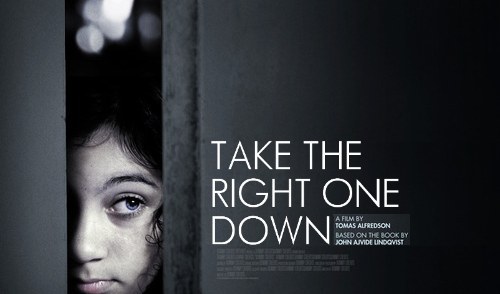
As Facebook expands its territory and allows for more and richer content, its responsibilities towards that content (and their users, and the law, etc.) become deeper and more complicated. While the structure of Facebook isn’t nearly as permissive as, say, a private message board or tracker site, the sheer amount of activity produced by hundreds of millions of users demands a level of vigilance matchable only perhaps by that exerted by YouTube administrators.
But like YouTube, they must also work within the law, and while this conflict surrounding the right to make a fan page for someone else’s work isn’t the most critical example of free speech, it serves for a quick lesson in DMCA compliance.
In early September, Overture Films, which is producing the US remake (Let Me In) of acclaimed Swedish vampire flick Let The Right One In, issued a DMCA takedown notice to Facebook regarding a fan group for their upcoming film. Overture (their advertiser specifically, Mammoth) had created an official page, but was bothered by the unofficial page, and demanded all their “infringing” content (links to trailers, fan art, and so on) be taken down.
As TechDirt noted at the time (and recently followed up on in this post, which prompted my own), this was pretty clearly an inappropriate application of DMCA restrictions. And of course, because the DMCA prioritizes copyright holders (right in theory, wrong in execution), the material was taken down more or less instantly.
Apparently savvy in this kind of conflict, the group administrator filed a counternotice on September 10th. The law states that if the copyright holder does not file a lawsuit within two weeks of the counternotice being submitted, then the material may be replaced (though whether Facebook would be required to is disputable). No such lawsuit has been filed (or if it has, it is being kept secret by all parties), and it is now October 8th: the material should have reappeared by now — should have reappeared around the end of September, in fact. Obviously, it has not, and around the time the material taken down should have been put back up, the administrator of the group closed it, saying “I am suffocated.” The disputed material is not back as of this writing.

A convenient ending for the copyright holder, don’t you think? While this particular instance is just more fuel for the fire in the ongoing anti-DMCA efforts, the culpa proxima (I made that term up) belongs to Facebook. Providing the means to organize a community implies some responsibility on their part to protect that community from harassment, and they have failed in that responsibility. No doubt they have bigger fish to fry, they’re launching the new features, and so on — but failure to serve a user in an issue like this is a failure in practice and principle. If Facebook can’t be trusted to serve their users’ best interests in a situation like this, they’ll find power users (who organize and drive many groups, fan pages, etc.) migrating elsewhere.
The DMCA claimant had their reasons for action — wrong though they were to do so, under the law they have the right to issue this takedown notice. The group admin was diligent in complying with both the law and Facebook policy, and rightly waited for the content to be restored instead of uploading it continuing as if he wasn’t under threat of legal action. The ball was in Facebook’s court, and they dropped it. Whether it was a missed email, an overworked legal response department, or deliberate inattention, Facebook was at fault here.
I suspect we will only see more of this kind of negligence as Facebook and its applications grow, which is why I am making a mountain out of this particular molehill. I encourage our readers (as with any other company or service) to air this sort of trouble as publicly as possible; lapses like these (Google’s recent MP3 fiasco, for example) must not be allowed to languish in obscurity.